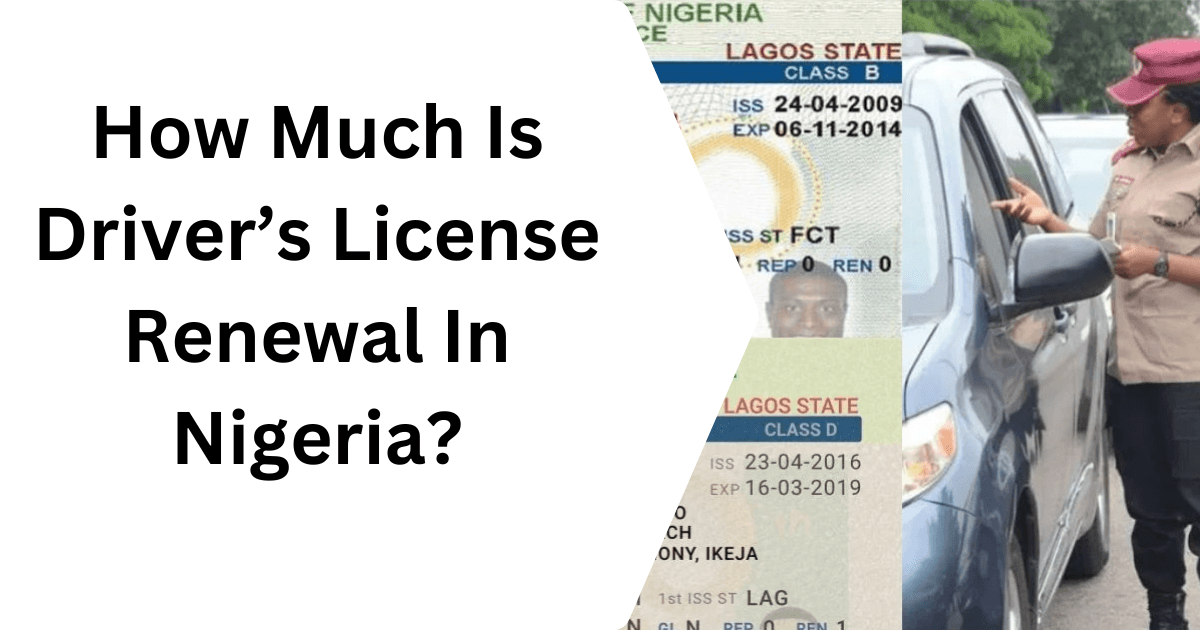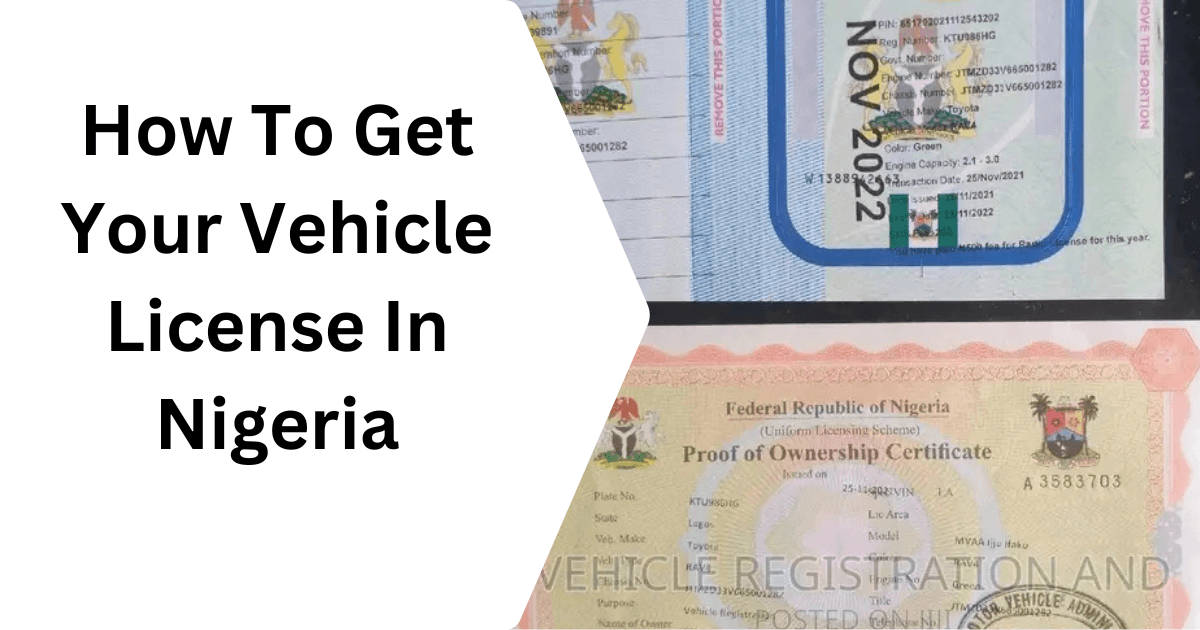Driving with a valid license is a legal requirement for all drivers in Nigeria. If your license has expired, it is important to renew it as soon as possible to avoid fines and stay on the right side of the law. More than that, renewing your license shows that you care about road safety and your ability to drive responsibly.
In Nigeria, the Federal Road Safety Corps (FRSC) handles the process of renewing driver’s licenses. This article will walk you through the current costs, the renewal process, and everything you need to know to get your driver’s license renewed quickly and easily.
How Much Is Driver’s License Renewal?
The cost of renewing a driver’s license in Nigeria depends on the type of license you have and how long you want to renew it. You can apply to renew your license starting 30 days before it expires. The process involves filling out an online form, making a payment, confirming the payment at the Board or Internal Revenue office, taking a test at the Vehicle Inspection Office (VIO), and going to an FRSC Driver’s License Centre for biometric capture (fingerprints and photo). If you want to know how to get your license; check out our other article.
Driver’s License Renewal Fees
The cost of renewing a driver’s license varies:
- Private Driver’s License: The renewal fee for a private license is usually between ₦6,000 and ₦10,000. This is for people who drive their own cars for personal use.
- Commercial Driver’s License: Renewing a commercial license costs more, usually between ₦12,000 and ₦20,000, because commercial drivers have more responsibility, such as transporting passengers or goods.
- Diplomatic Driver’s License: Diplomatic licenses are for foreign diplomats and may have extra costs. These are special licenses that might not follow the usual fee structure.
Keep in mind that renewal fees can change, so it’s always best to check with the FRSC or your local licensing office to get the latest information. This will help you avoid surprises and make the renewal process easier.
How To Renew Your Driver’s License in Nigeria
Renewing your driver’s license in Nigeria is a straightforward process, but it is important to follow the rules set by the Federal Road Safety Corps (FRSC). To make sure everything goes smoothly, here are the steps you need to take:
- Visit the Licensing Office
- Go to the nearest FRSC licensing office or any authorized licensing center in your area. It’s best to choose one that is close to you to make the process easier.
- Fill Out the Application Form
- Get the application form from the office or fill it out online. Make sure to provide current and accurate information, as mistakes can cause delays in processing your renewal.
- Pay the Renewal Fees
- You need to pay the required renewal fees, which can be done at a specified bank or through authorized online channels. Make sure to keep the payment receipt as you will need it for verification.
- Complete Biometric Capture
- As part of the process, you will need to undergo biometric capture, which includes taking a passport-sized photo and fingerprinting. This helps to update your details on the FRSC system.
- Pass the Eye Test
- An eye test is required to confirm your vision is good enough for driving. Make sure you pass this test, as it is necessary for getting your renewed license.
How Long Does the Renewal Process Take?
The time it takes to renew a driver’s license in Nigeria can vary, but generally, the process can be completed within two to three weeks. Once you have filled out the online application and made the necessary payment, you need to visit the FRSC Driver’s License Centre for biometric capture and other required checks. If there are no delays, your renewed license should be ready within this timeframe. However, some centers might offer expedited services for a quicker turnaround, but this could come with extra charges.
Delays can sometimes occur due to technical issues, a high number of applicants, or missing documents. To avoid any inconvenience, it is best to start the renewal process at least a month before your current license expires. This way, you will have enough time to complete each step and handle any unexpected delays without having to worry about driving with an expired license.
How to Check the Status of Your Renewal Application
After completing the steps to renew your driver’s license, you might want to check the status of your application to know when your new license will be ready. Fortunately, you can easily track the progress online.
To check the status of your renewal, visit the FRSC official website through this link. Once on the page, enter your application ID or driver’s license number, and you will be able to see if your license is ready for pickup or still being processed. This simple step can help you stay updated and avoid unnecessary trips to the licensing office.
Documents Required for Driver’s License Renewal
To renew your driver’s license in Nigeria, it is important to have all the necessary documents ready. This will ensure a smooth and quick renewal process without delays. Here are the key documents you will need:
- Expired Driver’s License: Bring your current or expired driver’s license as proof of your previous license details. This helps the officials verify your information and process the renewal.
- Completed Application Form: Whether you apply online or in person, you will need to fill out a renewal application form. Make sure the information you provide is accurate and matches your previous records.
- Payment Receipt: After paying the renewal fee, keep the payment receipt. You will need to present this at the FRSC office or licensing centre to confirm that you have made the necessary payment.
- Identification Documents: Have a valid form of identification, such as a national ID card, voter’s card, or international passport. This is used to confirm your identity.
- Passport-Sized Photographs: Although your photo will be taken during biometric capture, some centres might require additional passport-sized photographs. It’s best to bring a few, just in case.
- Proof of Address: Documents like utility bills or bank statements that show your current address might be needed to confirm your residential details.




